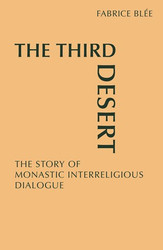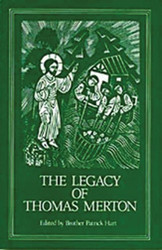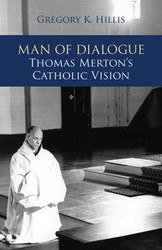Thomas Merton recognized the value and possibility of contemplative dialogue between monastics and contemplatives of other religious traditions and hoped that, through such dialogue, monastics would strive for "inter-monastic communion" and a bonding of the broader "spiritual family." He held out hope that this bond would demonstrate the fundamental unity of humanity to a world that was becoming ever more materialistic and divided.
Among other themes and topics, this book explores Thomas Merton's role as a pioneer of Buddhist-Christian dialogue and monastic interreligious dialogue. It delves into the process of Merton's self-transformation through contemplative experiences, explores his encounter with Zen and Tibetan Buddhists and his pioneering engagements in Buddhist-Christian dialogue, and presents and responds to the criticisms of those who raise questions about Merton's understanding of Buddhism.
Fr. Jaechan Anselmo Park, OSB, articulates and analyzes the influences of Buddhist theory and practice on Thomas Merton's contemplative spirituality and shows how Merton's legacy has influenced and continues to inspire interreligious and inter-monastic dialogue, particularly in an Asian monastic context.
Product Preview
| Format: | Paperback book |
|---|---|
| Product code: | LP8474 |
| Dimensions: | 5½" x 8½" |
| Length: | 320 pages |
| Publisher: |
Liturgical Press
|
| ISBN: | 9780814684740 |
| 1-2 copies | $30.75 each |
|---|---|
| 3-9 copies | $29.35 each |
| 10-49 copies | $27.96 each |
| 50-99 copies | $27.26 each |
| 100+ copies | $26.21 each |
Praise
Fr. Park's profound study of Thomas Merton's multi-religious encounters reveals the enormous impact and importance of Merton's legacy for the Church and for the world. It is the first extensive study to explore Merton's legacy in terms of how it has shaped the institutional church, through the activities of the Pontifical Council for Interreligious Dialogue (PCID), and through the Monastic Interreligious Dialogue (MID) which functions under its aegis. This is a convincing portrayal of Merton's pivotal importance in the history of interreligious dialogue.
This is a well-researched and readable analysis of Thomas Merton's understanding of and engagement with Buddhism. The work is enhanced by an extended consideration of the Christian-Buddhism dialogue from a monastic perspective. Since the author himself is an Asian monk he brings a fresh angle to his task. Like the good householder of the Gospel, Father Park brings forth old things and new.
This book is written by an experienced Asian Benedictine. It delves into the process of Thomas Merton's spiritual transformation through his encounter with Zen and Tibetan Buddhist thought, and his involvement in the dialogue of religious experience with their practitioners. Father Park makes it clear that the dialogue between Catholicism and Buddhism must be of a different kind from that with Judaism and Islam which centers on the dialogue of theological exchange. And indeed, because the practitioners of Buddhism emphasize the priority of experience over faith, a fruitful dialogue between Catholics and Buddhists may well be impossible without a dialogue on contemplative prayer. The book should be of special interest not only to lay and monastic contemplatives, but to those interested in double religious belonging and the new evangelization.
Jaechan Anselmo Park has gifted us with a carefully written, well-organized exploration of Thomas Merton's understanding of inner experience, interreligious dialogue, and inter-monastic/inter-contemplative dialogue. His detailed exploration of Merton's legacy concerning these matters establishes a context for considering the future of inter-monastic exchange and contemplative dialogue in Asia, and more specifically, Korea. Thomas Merton's Encounter with Buddhism clearly describes each of the topics that are explored, providing a historical overview and a critical analysis, drawing from well-recognized Merton scholars. Park makes extensive use of the books and journals of Merton, demonstrating both a familiarity and a critical knowledge of these works. He carefully—and this is much appreciated—repairs the exclusive language found in the older texts. Whether readers have an interest in the work of Thomas Merton, interreligious dialogue, or inter-monastic discourse, they will find this book to be an essential companion.
In Thomas Merton's Encounter with Buddhism and Beyond Jaechan Park explores Thomas Merton's dialogue with Buddhism getting to the very heart of it as only a fellow monk, steeped in the daily monastic rhythm of prayer and work, could do. Park then builds on Merton's legacy suggesting important ways monastic and contemplative interreligious dialogue can continue to develop in the twenty-first century and beyond.
Park leads the reader on a fascinating journey through the spiritual and apostolic life of Thomas Merton. The prayerful journey within explores Merton's life of self-transcendence in relationship with God that leads him to share with fellow contemplatives the riches of a deepening love and intimacy with God. The apostolic journey that results is one of greater sharing of that spiritual life with fellow Christian, Buddhist, and Hindu contemplatives through a pilgrimage of worldwide encounters. Both journeys lead to a common goal of sharing divine life. Park's Thomas Merton's Encounter with Buddhism and Beyond is a finely researched work well worth exploring.
An intriguing and significant contribution to interfaith encounter, Benedictine Jaechan Anselmo Park's carefully researched Thomas Merton's Encounter with Buddhism and Beyond provides fresh insight into the way that Merton's evolving sense of contemplation and his exploration of experiential interfaith dialogue broke new ground. Park's passionate concern for human self-transformation is evident as he chronicles Merton's explorations of the inner dimensions of contemplative practice, despite the Cistercian's sometimes limited understanding of Buddhism. These explorations, both existential and intellectual, continue to provide a challenging yet fruitful model for interfaith dialogue that goes beyond theology and action-orientation to the contemplative core of religious experience however variously it might be conceptualized or experienced.
The author's detailed, clearly articulated, logically developed argument, based on a thorough familiarity with the full range of relevant primary and secondary sources, makes a strong, persuasive case for the crucial importance of Merton's contribution to interreligious dialogue generally and to Buddhist-Christian inter-monastic/contemplative interaction in particular.
I am aware of no other study that combines both a critical appraisal of Merton’s limitations with respect to Buddhism while celebrating his capacious desire to learn from and be transformed by the other. Although set as an academic study, this is a book written from the heart of contemplative prayer and gratitude, such that Pieris’ conviction bears out, with a welcome twist: Christianity can recover its Eastern sense by dialoguing with its own monks, especially those from the East.
Even though various books and articles about Thomas Merton’s keen interest in Buddhism and his dialogue with particular Buddhists have already appeared, Jaechan Anselmo Park’s recently published work is a valuable addition to these studies. The book offers extensive reflections on the way in which Merton’s legacy continues in our own day, including in Park’s native South Korea.
Author
Jaechan Anselmo Park, OSB, is a member of St. Benedict Waegwan Abbey in South Korea, where he has been vocation director and director of the Monastic Experience program. He received his STL and ThD from Regis College at the University of Toronto, Canada, where he is currently completing a doctorate in sacred theology. Park is interested in spiritual direction, Thomas Merton and inter-monastic religious dialogue. Presently, he engages in Dialogue Interreligieux Monastique/Monastic Interreligious Dialogue (DIMMID) as an at-large director for intra-monastic dialogue in Asia.








